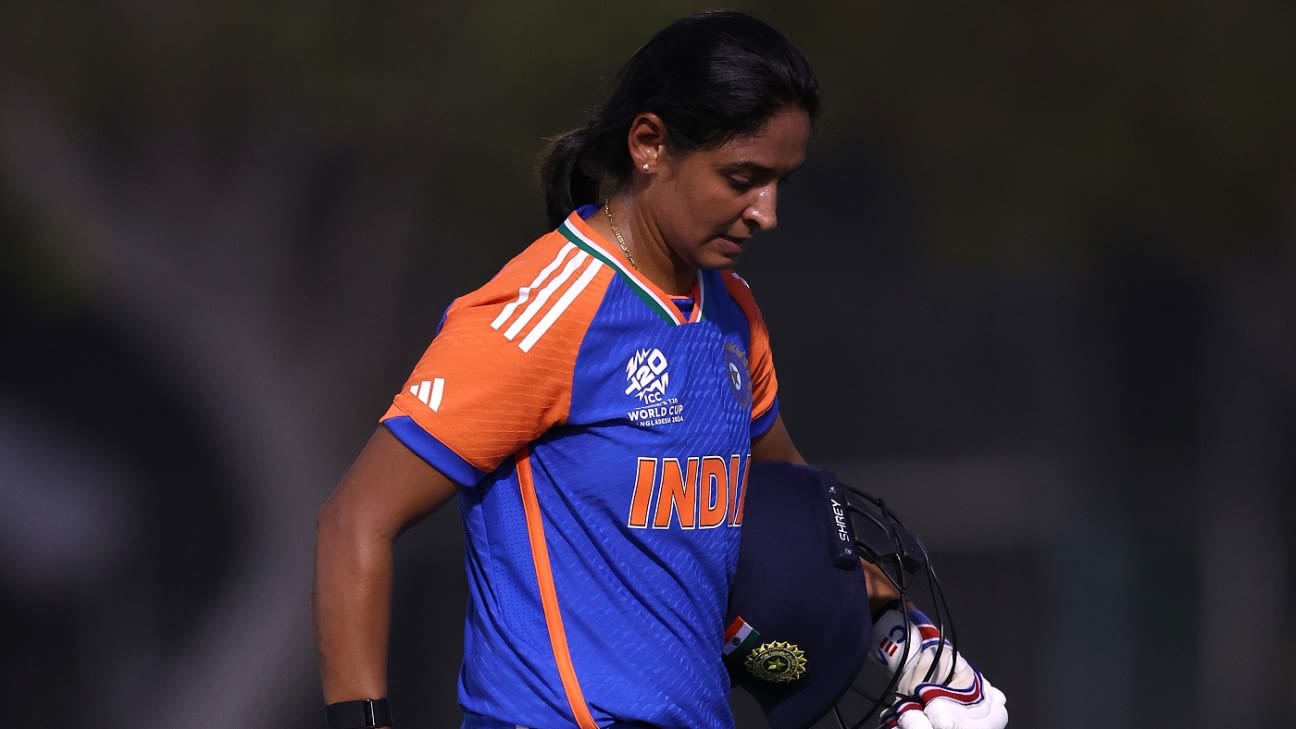“Absolutely. Not just the warm-up games, but we had already decided back in India, in the camps that happened before we set off for the World Cup” Muzumdar said ahead of India’s tournament opener on Friday against New Zealand. “We had a lovely camp in Bangalore. We had decided there itself. These pre-World Cup matches absolutely stamped that for us.
“Is it a surprise? No. If you can guess, you can go through the scorecards and you will find it.”
It would appear the reasoning behind the decision is to give Harmanpreet the best chance of being able to maximise on her power game once set. At the position she otherwise bats, at four or five, Harmanpreet has largely found herself playing catch up; the telling evidence being her strike rate of 94.09 across 84 T20 innings since 2022.
Muzumdar could’ve turned to Jemimah Rodrigues if required, but her maneuverability against spin makes her key at No. 4 or 5. The line of thinking is that Rodrigues, a touch player. can find it easier to pick gaps with spread out fields.
WPL given us a strong base to find players
Muzumdar talked up India’s squad strength while also underlining how key back-up players were handed certain roles. Like Sajana, who enhanced her reputation as an X-factor player, being sent on the ‘A’ tour to Australia to “tick off certain boxes” as part of her development.
“I think it’s been a collective effort not just from the Indian team or the Indian contingent but also from the NCA,” Muzumdar. “We’ve been completely in sync with the coaches over there who went on the India A tour to Australia. [We’ve] had constant chats, feedback were given post the tour as well.
“I think we’re trying to formalise a lot of stuff. Apart from the Indian contingent as I said, the India A [setup] is also very important for us so that we get a lot of players, and the bench strength is stronger. We’ve seen the results.
“Some of the players that have come into the Indian squad here at the World Cup are the product of what WPL is. Of course, not undermining the first-class [domestic] cricketers back home. But WPL has given us a strong base to find players.”
Shreyanka is just 12 T20Is old but has already been identified as a key death bowler capable of creating angles, like her fast-bowling team-mates, from around the stumps. With her variations in pace, she has also shown the propensity to bowl in every phase of the game.
The WPL has also contributed to elevated fitness levels, through close monitoring and off-season camps where physios have continued to monitor players and have been in sync with the NCA through the Athlete Monitoring System (AMS) designed to give markers over a player’s workload and map performances.
The byproduct of all this, apart from primary skills, is elevated fielding levels, something Muzumdar underlined as top priority when he took over last December.
“We’ve worked upon it,” Muzumdar said. “Thoroughly gone deeper into it and tried to absolutely work individually, first in regard to the volume as far as fielding is concerned. And then in fitness we’ve paid attention to each individual to take their fitness levels to the next level.
“So, I think we’ve put in that effort. The effort has been there. I think you’ll definitely see the results.”
Shashank Kishore is a senior sub-editor at ESPNcricinfo
